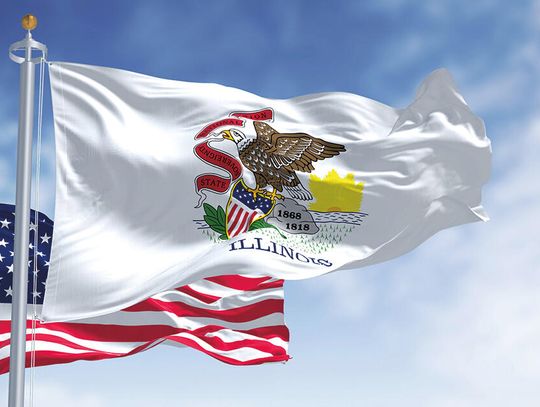The Warsaw Institute Foundation to pierwszy polski geopolityczny think tank w Stanach Zjednoczonych. Strategicznym celem tej organizacji jest wzmocnienie polskich interesów w USA przy jednoczesnym wspieraniu unikalnego sojuszu między dwoma narodami. Jej działalność koncentruje się na takich zagadnieniach jak geopolityka, porządek międzynarodowy, polityka historyczna, energetyka i bezpieczeństwo militarne. The Warsaw Institute Foundation została założona w 2018 roku i jest niezależną organizacją non-profit, inspirowaną bliźniaczą organizacją działającą w Polsce – Warsaw Institute. The Warsaw Institute Foundation is Poland's first geopolitical think tank in the United States. The strategic goal of this organisation is to bolster Polish interests in the U.S. while supporting the unique alliance between the two nations. Its activity focuses on such issues as geopolitics, international order, historical policy, energy, and military security. Established in 2018, The Warsaw Institute Foundation is an independent, non-profit organization inspired the twin Poland-based Warsaw Institute.
Brexit to fenomen w najnowszej historii Europy. Jeszcze nigdy żadne państwo nie opuściło struktur Unii Europejskiej. Istotnym jest fakt, że proces ten odbył się w sposób demokratyczny, poprzez decyzję Brytyjczyków wyrażoną w ogólnokrajowym referendum w czerwcu 2016 r. Formalnie wieloletni udział Zjednoczonego Królestwa w europejskim projekcie integracyjnym zakończył się 31 stycznia 2020 r., odtąd Wielka Brytania formalnie jest poza unijnymi strukturami. Ale to nie jest jeszcze całkowity koniec całego procesu, a przed jego aktorami są długie negocjacje nowej umowy regulującej przyszłe wzajemne stosunki. Warto się zatem zastanowić jakie istotne implikacje będzie miał sam brexit dla Polonii, zamieszkującej zarówno w Wielkiej Brytanii, jak i Stanach Zjednoczonych, oraz dla całej UE.
Na wstępie warto wyjaśnić, iż samo słowo brexit jest skrótem od dwóch wyrazów: Britain (Brytania) i exit (wyjście). Sam brexit to nazwa procesu wyjścia Wielkiej Brytanii z Unii Europejskiej, który rozpoczął się 29 marca 2017 r., kiedy to ówczesna brytyjska premier Theresa May podpisała list, który uruchomił art. 50 unijnego Traktatu Lizbońskiego i oficjalnie rozpoczął bezprecedensowy proces wyjścia ze struktur UE. Decyzja premier May wynikała bezpośrednio z wyników brytyjskiego referendum w czerwcu 2016 r., w którym to obywatele tego państwa zdecydowali o wyjściu z UE. Wielka Brytania opuściła formalnie unijne struktury 31 stycznia 2020 roku, rozpoczynając 11 miesięczny okres przejściowy, w którym na nowo muszą być uregulowane przyszłe stosunki zarówno dyplomatyczne, jak i handlowe w nowej, przyszłej umowie pomiędzy Zjednoczonym Królestwem a Unią Europejską.
Wyjście Wielkiej Brytanii z Unii oznacza między innymi zmianę przepisów dotyczących przepływu pracowników miedzy Wyspami a Europą. Pozostający na Wyspach Polacy i polskie firmy będą pracowały w oparciu już tylko o brytyjskie, a nie unijne przepisy. Większość ekspertów jest zdania, że brexit nie powinien dotknąć osób, które mieszkają w Wielkiej Brytanii, mają prawa do mieszkania i pracy i do końca 2020 r. zarejestrują się w brytyjskim systemie osiedleńczym. Uważają oni jednak, że zmieni się sytuacja osób, które jeżdżą tam na jakiś czas, np. do prac sezonowych.
Co istotne, Następstwa Brexitu nie będą natychmiastowe, po 31 stycznia 2020 r. muszą się rozpocząć negocjacje handlowe, które mają potrwać nawet rok, lub kilka lat; a cały proces opuszczania UE potrwa znacznie dłużej niż do końca 2020 r. Jeden z przepisów prawa UE stanowi, że kraje członkowskie muszą traktować obywateli innych krajów europejskich jak własnych (zasada równego traktowania), więc jeżeli Wielka Brytania opuści Unię Europejską, to przestanie ona podlegać między innymi tej zasadzie. Oznacza to, że sama będzie decydowała o tym, jak traktować cudzoziemców, w tym ogromną liczbę Polaków i innych obywateli państw UE.
Są jeszcze dwie istotne zmiany dla obywateli UE, w tym Polaków mieszkających w Wielkiej Brytanii po brexicie. Po pierwsze, brytyjski rząd będzie miał możliwość wstrzymania wszystkich zasiłków socjalnych dla osób, które nie posiadają obywatelstwa brytyjskiego. Po drugie, brexit może oznaczać trudności w znalezieniu pracy. Wszystko zależy od zmienionych zasad, które wprowadzi rząd Wielkiej Brytanii po wyjściu z UE, a te mogą być znacznie mniej korzystne, zwłaszcza dla osób, które prowadzą tam własną działalność gospodarczą.
Z punktu widzenia Stanów Zjednoczonych Ameryki, brexit był głosowaniem Brytyjczyków przeciw ekonomicznej globalizacji, która stoi za UE, czyli de facto za silnym państwem narodowym. Ale także warto dodać, że przez tę decyzję słabsza Wielka Brytania zaczyna powoli znikać z głównej sceny świata finansów, gdyż inwestorzy stopniowo przenoszą inwestycje z londyńskiego city (m. in. do Frankfurtu, Rotterdamu, Paryża, czy Nowego Jorku). Powoduje to niepewność zarówno w całej Wielkiej Brytanii, jak i w powiązanej z nią więzami gospodarczymi Europie. Stabilność gospodarcza Ameryki oznacza, że ewidentna strata inwestorów w londyńskim city może być czystym zyskiem nowojorskiej Wall Street.
Istotną informacją także jest to, że zwiększyła się wartość dolara w stosunku do funta (od początku procesu wyjścia Wielkiej Brytanii dolar się umocnił o około 15%). Ta relatywna siła amerykańskiej waluty nie jest jednak dobra dla rynków giełdowych w USA, gdyż to sprawia, że amerykańskie akcje są droższe dla inwestorów zagranicznych. Słaby funt powoduje również, że eksport USA do Wielkiej Brytanii jest droższy. Stany Zjednoczone mają obecnie aż 18,9 mld USD nadwyżki handlowej z Wielką Brytanią. W 2018 r. wyeksportowały 141 mld USD, importując 122 mld USD. Brexit może przekształcić tę nadwyżkę w deficyt, jeśli słaby funt sprawi, że import z Wielkiej Brytanii będzie bardziej konkurencyjny, co nie jest paradoksalnie dobre dla Ameryki. Brexit hamuje także rozwój i działalność firm działających w Europie. Firmy z USA zainwestowały 758 miliardów dolarów w Wielkiej Brytanii w 2018 r. Większość z nich to sektor finansowy z pewną produkcją. Firmy te wykorzystują Wielką Brytanię jako bramę do wolnego handlu z państwami UE. Firmy z Wielkiej Brytanii zainwestowały w Stanach Zjednoczonych 561 miliardów dolarów. Brexit stanowi także zagrożenie dla miejsc pracy w obu państwach. Ponadto w Stanach Zjednoczonych było 716 tys. imigrantów z Wielkiej Brytanii i 215 tys. imigrantów z USA w Wielkiej Brytanii w 2019 r. Warto dodać, że spora liczba Brytyjczyków mieszka wciąż w państwach UE, najwięcej obecnie w Hiszpanii .
Warto na koniec się zastanowić co te wszystkie wydarzenia związane z brexitem realnie oznaczają dla Polski czy Stanów Zjednoczonych oraz obywateli tych państw. Na pewno nadchodzi teraz trudny okres w globalnych finansach i polityce. W czasach pandemii koronawirusa, nadchodzącej globalnej recesji i paniki na rynkach finansowych wszystkie państwa będą miały spory problem, ale wiele wskazuje na to, że w Wielkiej Brytanii te problemy będą nawet większe. Brytyjczycy sami muszą sobie poradzić z kryzysem w służbie zdrowia, utratą zaufania do klasy politycznej oraz groźbą rozpadu swojego państwa (kwestia niepodległości Szkocji oraz zjednoczenia Irlandii). Znaczna część Polaków na emigracji w UK wybierze zapewne powrót do pewniejszej obecnie Polski. W punktu widzenia Ameryki słaba Wielka Brytania nie jest wcale korzystna, to przecież największy jej sojusznik w globalnej rywalizacji, tak więc jej osłabienie nie wpływa korzystnie na amerykańskie plany. Czas pokaże, że Wielka Brytania po brexicie poradzi sobie sama na arenie międzynarodowej i w jaki sposób teraz ułoży sobie relacje zarówno z UE jak i USA.
dr Szymon Bachrynowski
Polski politolog. Doktor nauk politycznych na UMCS w Lublinie. Obecnie pracuje w Kancelarii Sejmu jako specjalista oraz jako adiunkt w Collegium Bobolanum. Członek Polskiego Towarzystwa Studiów Międzynarodowych. Ekspert w projekcie V-DEM od 2019 r.
The Warsaw Institute Foundation to pierwszy polski geopolityczny think tank w Stanach Zjednoczonych. Strategicznym celem tej organizacji jest wzmocnienie polskich interesów w USA przy jednoczesnym wspieraniu unikalnego sojuszu między dwoma narodami. Jej działalność koncentruje się na takich zagadnieniach jak geopolityka, porządek międzynarodowy, polityka historyczna, energetyka i bezpieczeństwo militarne. The Warsaw Institute Foundation została założona w 2018 roku i jest niezależną organizacją non-profit, inspirowaną bliźniaczą organizacją działającą w Polsce – Warsaw Institute. The Warsaw Institute Foundation is Poland's first geopolitical think tank in the United States. The strategic goal of this organisation is to bolster Polish interests in the U.S. while supporting the unique alliance between the two nations. Its activity focuses on such issues as geopolitics, international order, historical policy, energy, and military security. Established in 2018, The Warsaw Institute Foundation is an independent, non-profit organization inspired the twin Poland-based Warsaw Institute.
The Warsaw Institute Foundation to pierwszy polski geopolityczny think tank w Stanach Zjednoczonych. Strategicznym celem tej organizacji jest wzmocnienie polskich interesów w USA przy jednoczesnym wspieraniu unikalnego sojuszu między dwoma narodami. Jej działalność koncentruje się na takich zagadnieniach jak geopolityka, porządek międzynarodowy, polityka historyczna, energetyka i bezpieczeństwo militarne. The Warsaw Institute Foundation została założona w 2018 roku i jest niezależną organizacją non-profit, inspirowaną bliźniaczą organizacją działającą w Polsce – Warsaw Institute. The Warsaw Institute Foundation is Poland's first geopolitical think tank in the United States. The strategic goal of this organisation is to bolster Polish interests in the U.S. while supporting the unique alliance between the two nations. Its activity focuses on such issues as geopolitics, international order, historical policy, energy, and military security. Established in 2018, The Warsaw Institute Foundation is an independent, non-profit organization inspired the twin Poland-based Warsaw Institute.
Więcej o autorze / autorach:
Reklama











